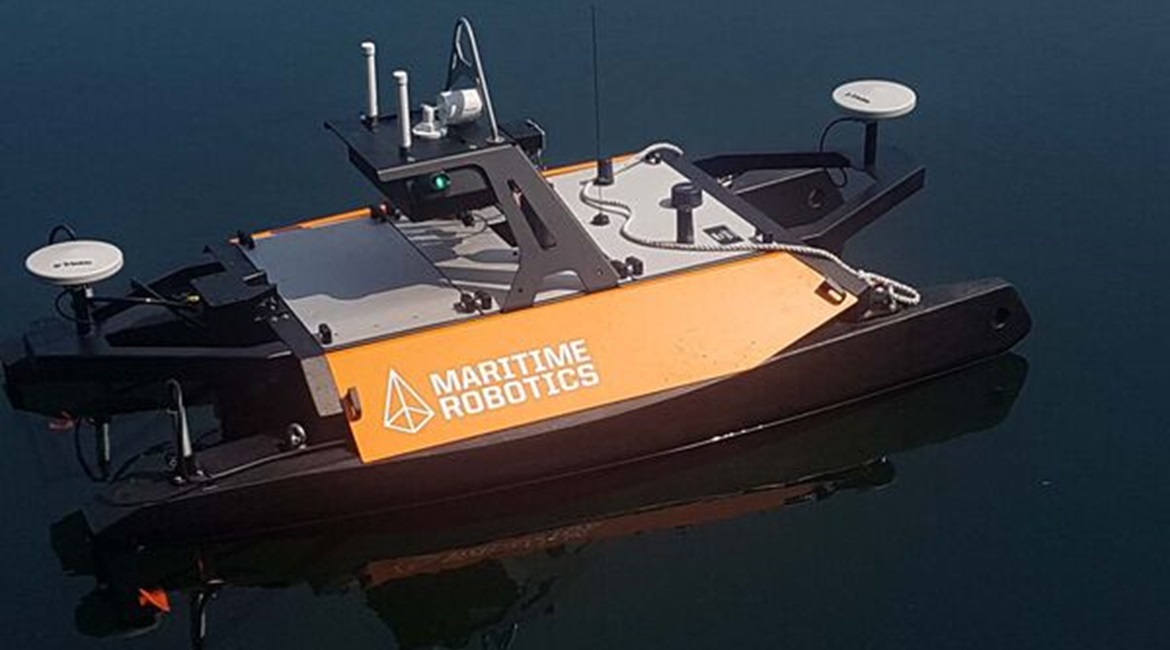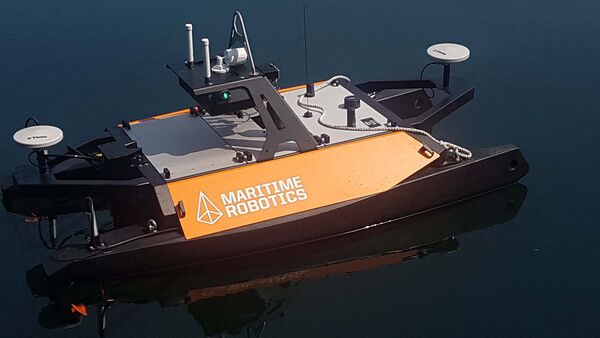
A small portable unmanned catamaran survey craft has completed first trials with the UK Royal Navy (RN) as part of the service's Project Hecla initiative.
Developed by Maritime Robotics in Norway and supplied through UK-based RS Aqua under a GBP140,000 (USD194,000) 13-month contract placed in February, the Otter Pro unmanned surface vehicle (USV) underwent initial trials in July at the Defence Diving School on Horsea Island, Portsmouth.

The Otter Pro USV delivered to Project Hecla was developed by Maritime Robotics in Norway, and supplied through UK-based RS Aqua. (Royal Navy/Crown Copyright)
Project Hecla is part of the Future Military Data Gathering Programme and sits within the Develop Directorate of Navy Command. The project aims to develop the concepts and key user requirements to support the transition to autonomous/uncrewed surface and subsurface systems for geospatial information collection to meet defence intelligence requirements. The programme is intended to examine how future operating concepts could improve the accuracy and timeliness of tactical hydrography, as well as impact of the technology across various defence lines of development.
With a footprint of only 200 × 108 × 81.5 cm and a weight of 55 kg, the Otter Pro USV has been designed for portability and ease of deployment (a single operator can launch the vehicle from a jetty, riverside, or beach). The system has been purpose-designed for bathymetric surveys in sheltered and inshore waters such as small lakes, canals, rivers, and harbour areas.
Powered by four interchangeable battery backs, the Otter Pro USV uses dual-electric fixed thrusters for propulsion and has an endurance of up to 20 hours when operating at a speed of 2 kt.
Looking to read the full article?
Gain unlimited access to Janes news and more...




